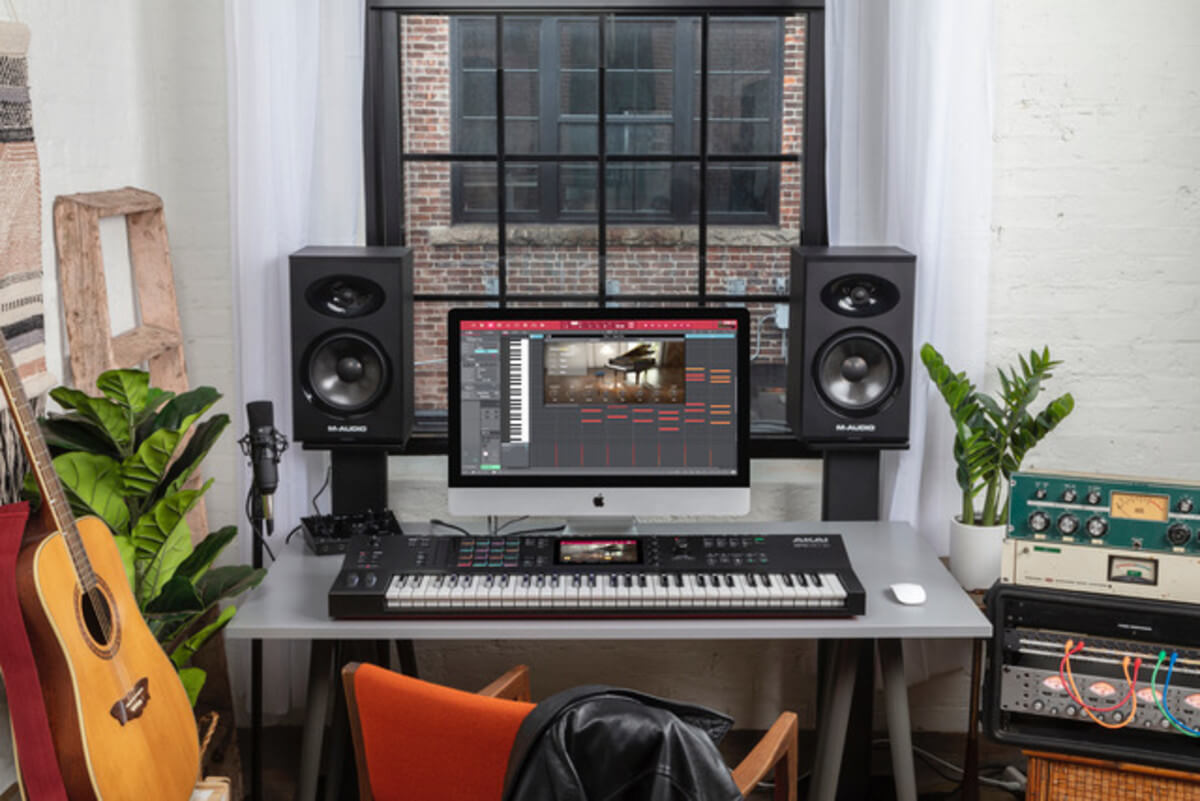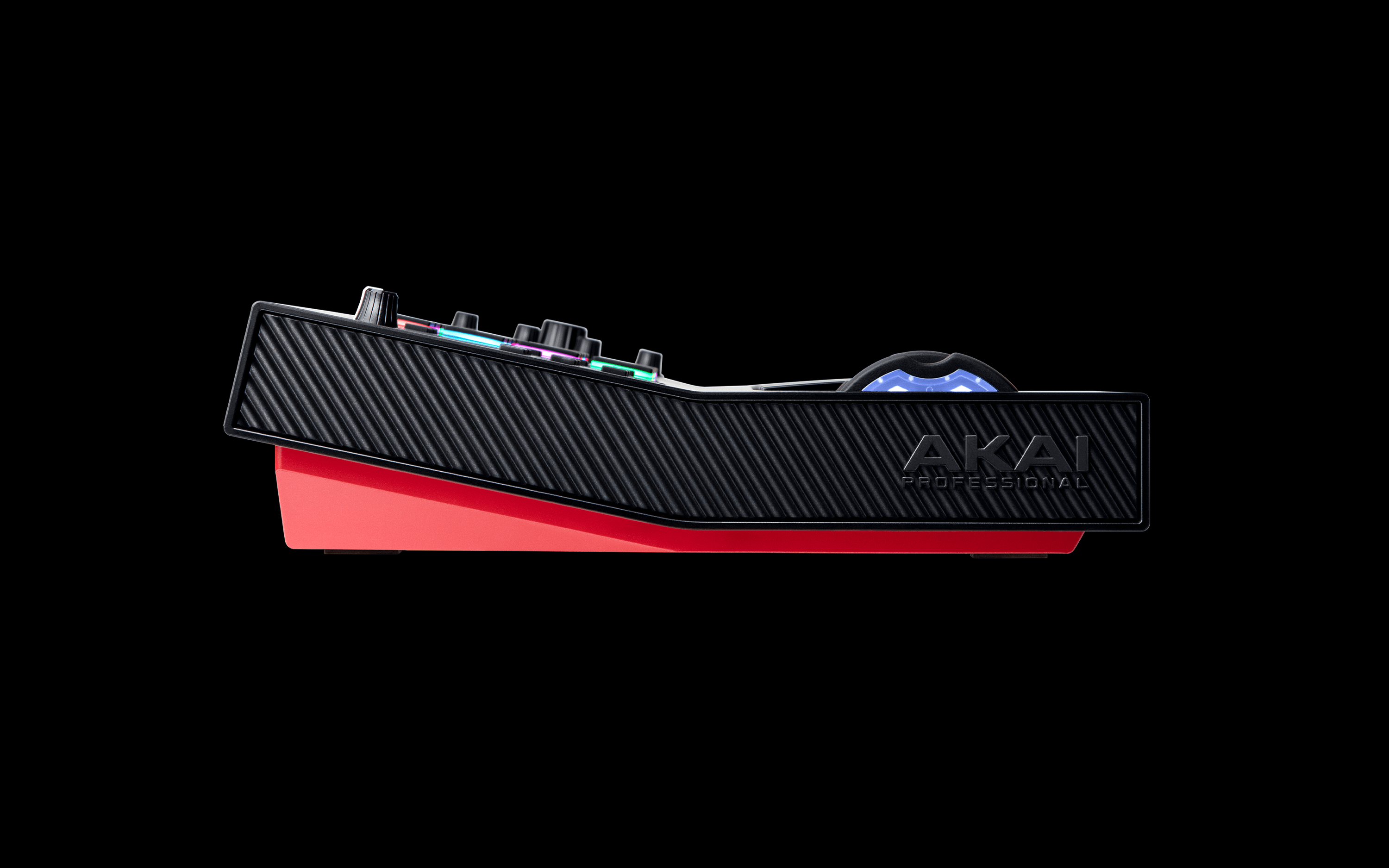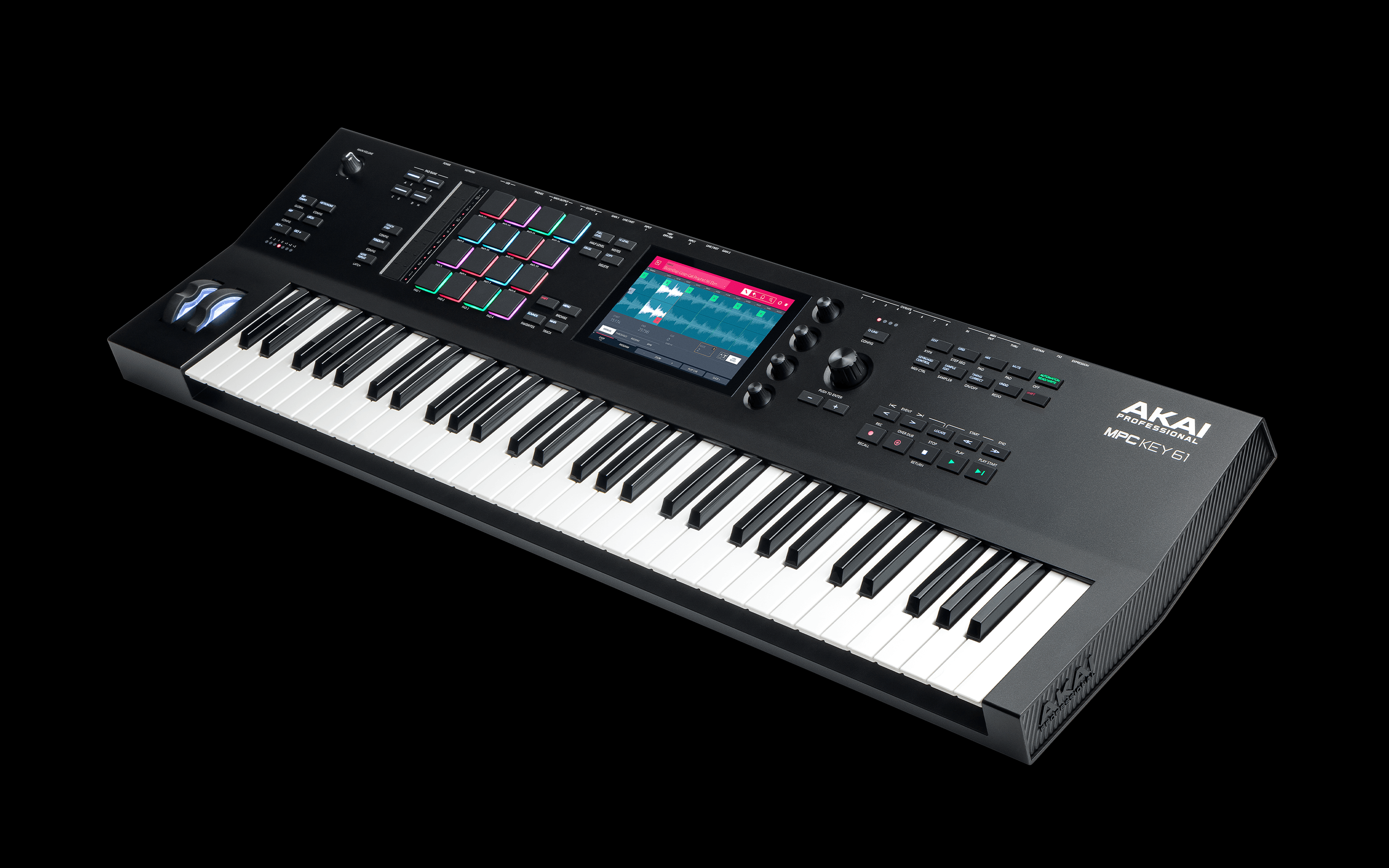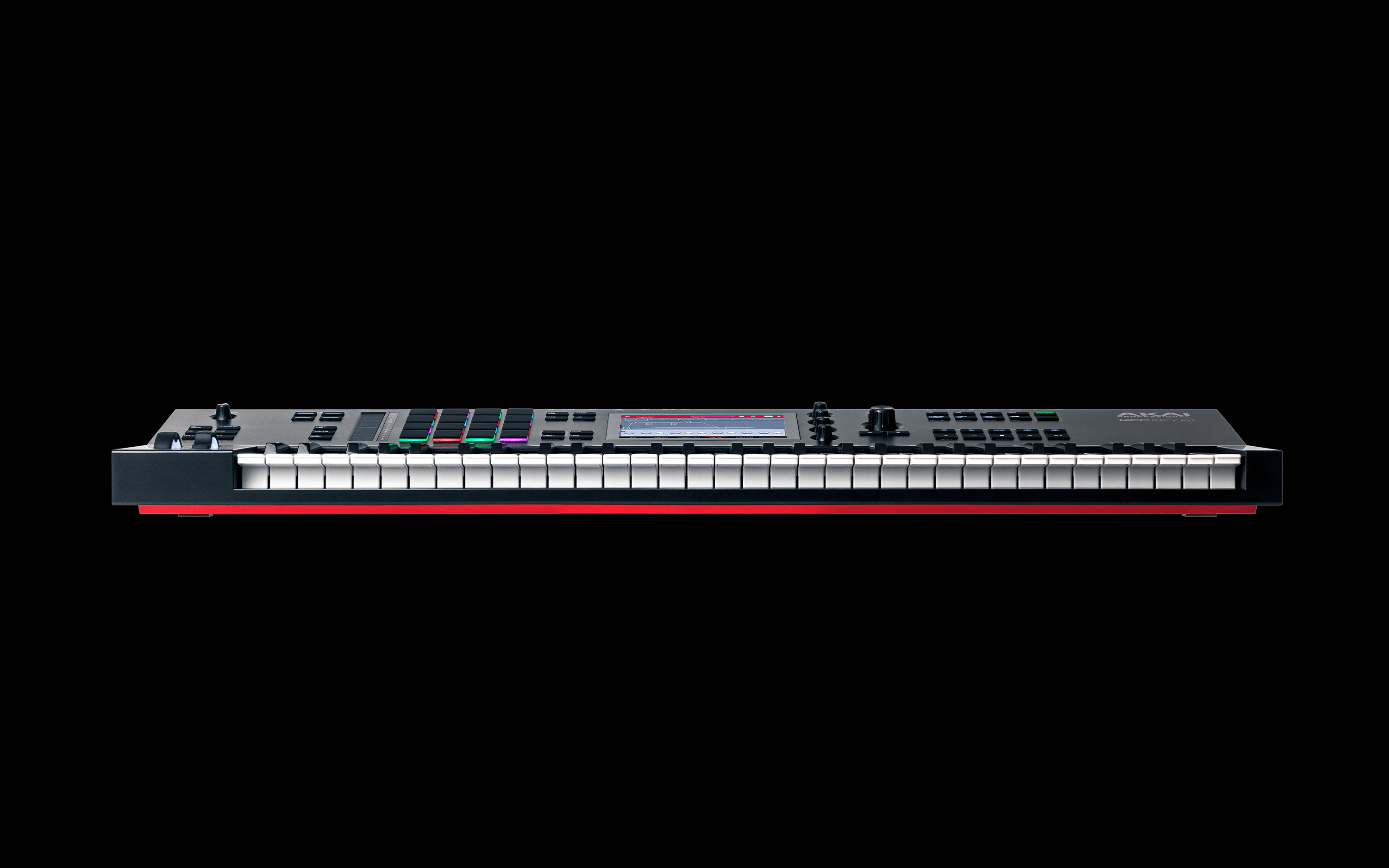AKAI Pro MPC Key 61 synth: streamline your studio with one tasty synthesizer
Image Credit: Magnetic Magazine
As time goes on, your home studio begins housing music gear with specific functionaltiies. But the AKAI MPC Key 61 is set to change that with its plethora of features that will streamline your workflow.
AKAI have long been pioneers in the all in one music performance tool market. Now, the MPC Key 61 is a true testament to that title. The latest AKAI synthesizer workstation tool is packed full of features for endless inspiration, creativity and most importantly, fun.
The AKAI MPC Key 61: composition and performance tools for your home studio and the stage
Powered by a quad-core processor with 4 GB of RAM, the Akai MPC Key 61 is a standalone music production keyboard synthesizer. The synthesizer combines the infamous MPC interface and velocity-sensitive RGB drum pads with a semi-weighted 61-key keybed – and that’s just the start of it. It packs 32 GB of internal storage but has an SSD card slot for expandable space!
Interface features
First, let’st talk about the new keybed. 61 semi-weighted keys with aftertouch have been “created with attention to feel, velocity response, and dynamic accuracy” with an end goal of easy performance perfect for any playing style.
And to left hand side of the key bed sits dedicated creative pitch & mod wheels. An assignable touch strip sits above the keybed, and you can use it to manually adjust plugin parameters, apply automation, note repeat, and more.
To the right of the touchstrip sit 16 velocity-sensitive RGB drum pads with bank buttons that allow you to effortlessly access & capture drum takes.
The 7″ multi-gesture interactive touch screen displays all of your project information. Here you can select your instruments, change plugin parameters, and more including physically apply edits and trim your samples “with precision”.
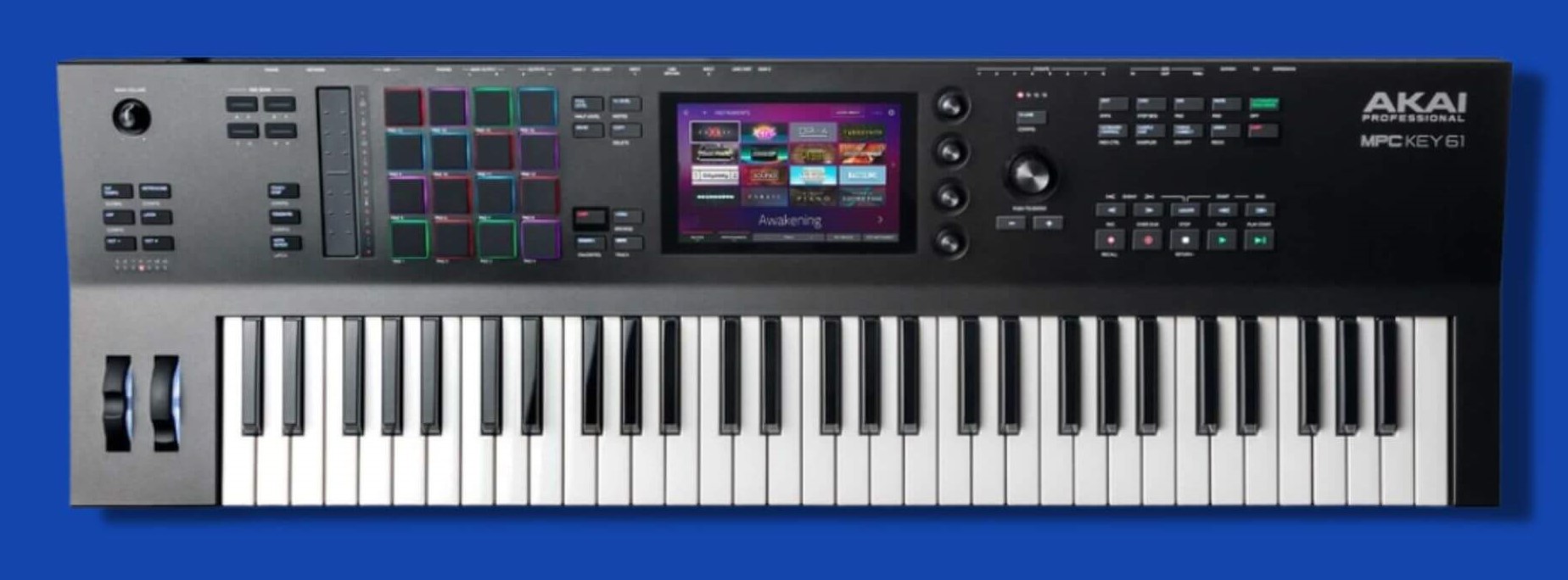
To the right of the screen sits a rotary encoder knob for adjusting data values. You can control parameters, automation, and more with four 360 Q-Link knobs too.
On the far right of the interface sit transport controls for recording and over dubbing, in addition to play, stop, and locate buttons.
Finally, in the top left of the MPC Key 61 sits the main volume knob for adjusting both main & headphone level.
Onboard virtual instruments & software synthesizers
The MPC Key 61 features twenty five impressive virtual instruments that give you everything from acoustic sounds to digital synthesizers. However, it includes sick brand new instruments making their debut.
Fabric
First, an impressive standalone synthesizer. Fabric is a hybrid polyphonic synth which is powered by a powered by a sample-based engine.
OPx4
Capture the sound of iconic synthesizers for iconically vintage sounds.
Organ plugin
A rich organ sound that simulates real leather & virtual draw bars.
Stage Piano
Stage Piano “takes full advantage of the semi-weighted keys”. It’s a collection of virtual acoustic pianos that range from concert grand pianos to more intimate pinao instruments.
Studio Strings
Here is a collection of orchestral instruments that includes solo violin, violas, double-bass, and more, in addition to full orchestral ensembles.
Stage EP
Finally, a collection of keyboards that includes Rhodes, Whirley keyboards and more. You can expect to get some funky ideas flowing after the press of a few keys.
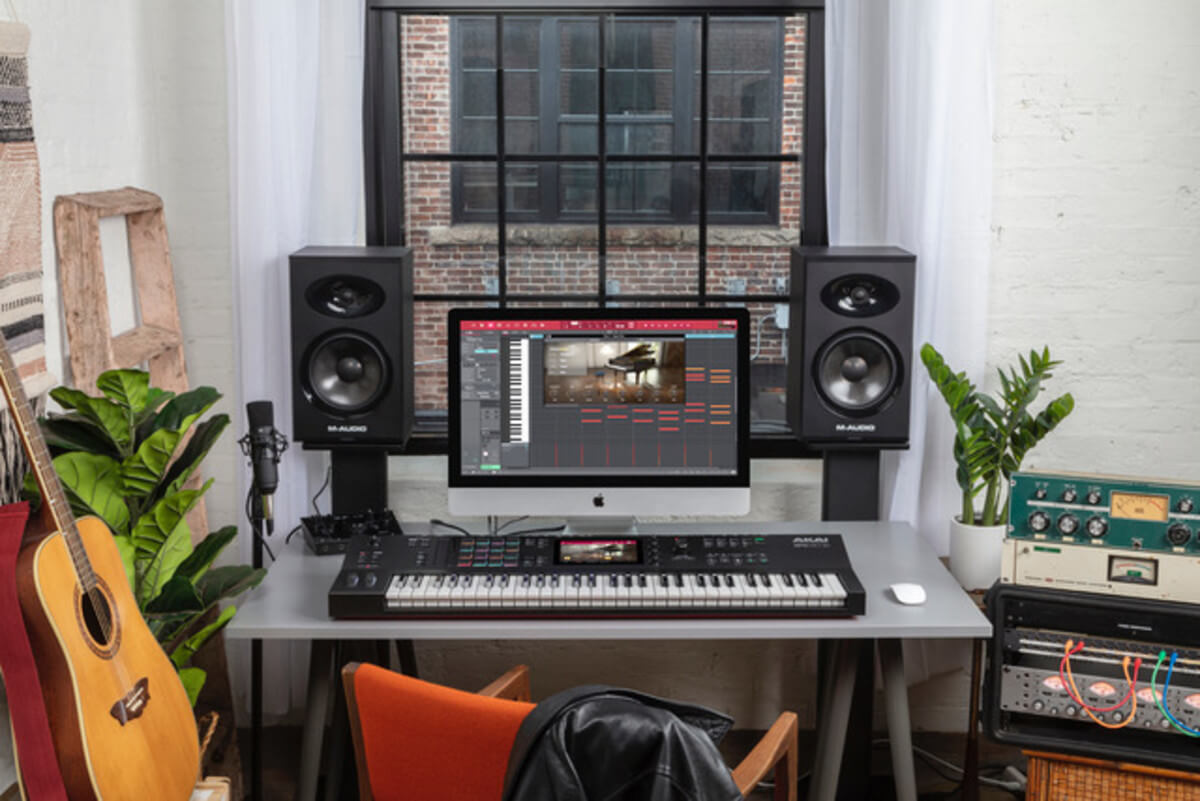
Sounds, Tabs, Workflow
Next, the new sounds page is a one stop shop for organising your workflow. Organise all plugin instruments, your preset selections, set lists and your favourite sounds in one place.
Here you can access all MPC plugin instruments and select the plugin you desire. By doing so you’ll see a page full of pre-sorted sound categories that allow for quick browsing of instrument types.
Setting your favourite sounds is a simple process – simply enter the Favourites tab with an instrument loaded and hold an empty slot via the touchscreen. Then your chosen instrumetn or sound will populate that slot.
The performance tab allows you to save plugin instrument templatess that can load up in the future at once! This is a huge time saver for anyone who knows where their idea needs to go. Simply select your instrument template and get writing!
In the Set Lists tab, save entire projects for live performance and cue songs one after the other.
Finally, the Key Ranges tab allows you to stack & layer multiple track types (bass, drums, etc.) and create custom variations. Additionly, you can break up the key bed into zones that accommodate for your track types by adjusting the split points here.
Connectivity
With all of this impressive functionality and an abundance of sounds, what more could you want? Well, lavish connectivity of course! Let’s look at the rear of the synth, shall we?

MPC Key 61 I/O connectivity includes:
- 4 mono 1/4 outputs & a stereo 1-4 headphone out
- 2 combo jacks for line, instrument, and microphone level sources where each input has its own voltage level switch & gain knobs (+48V switch sends phantom power to both inputs)
- 8 eighth inch TS output jacks allow you to connect to CV and gate devices
- MIDI In, Out and Through connections allow you to connect to modules, other synthesizers and true MIDI enabled devices
- 3 keyboard pedals (sustain, expression & assignable foot jacks)
- 2 USB type A ports for external storage
- 1 USB type B for connecting to MIDI devices and audio interfaces
- 1 ethernet port for Ableton Link connection where no WiFi is available
Price and availability
The AKAI Pro MPC Key 61 standalone synthesizer is available now for $1,899/£1,699.
